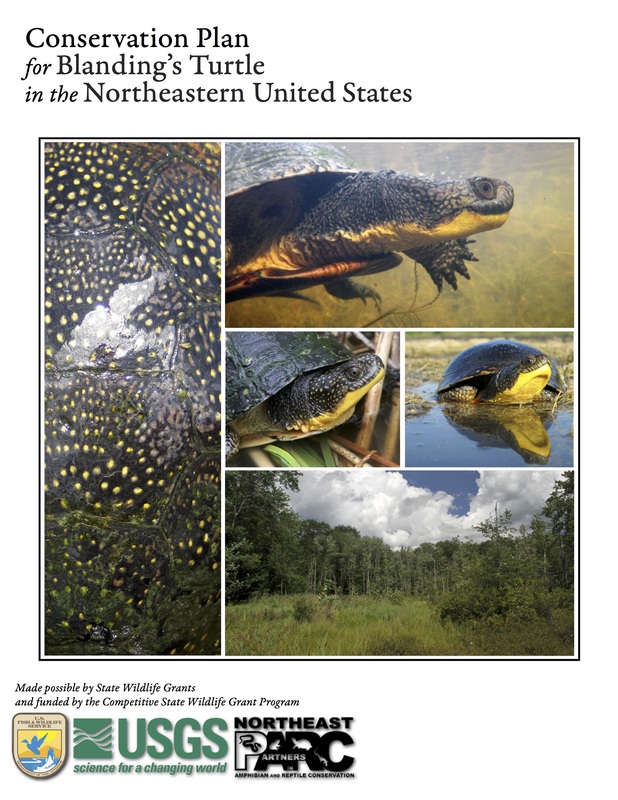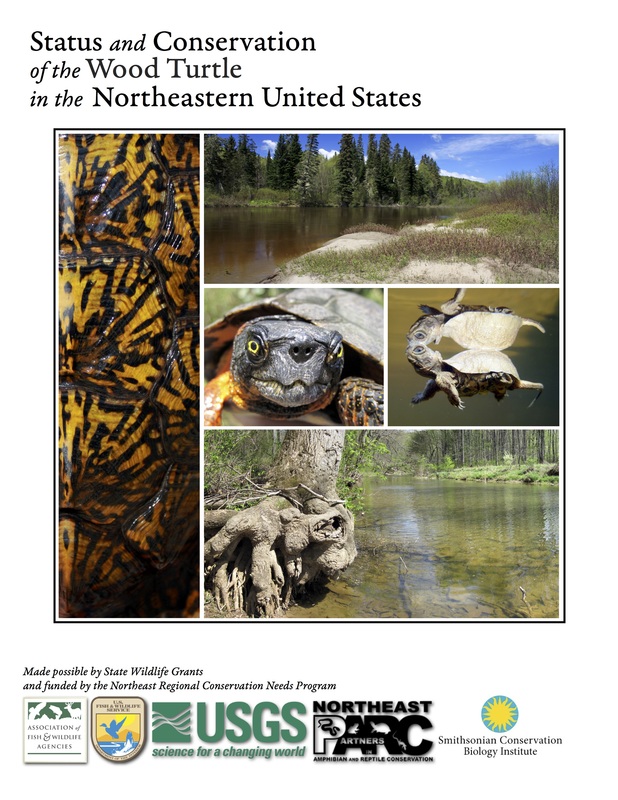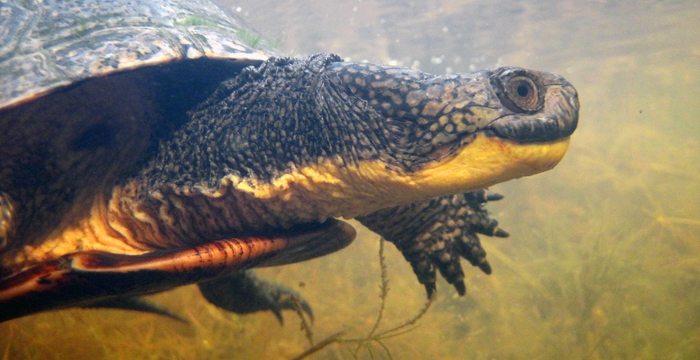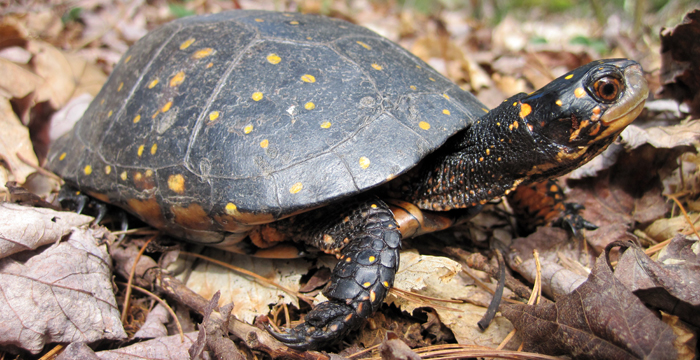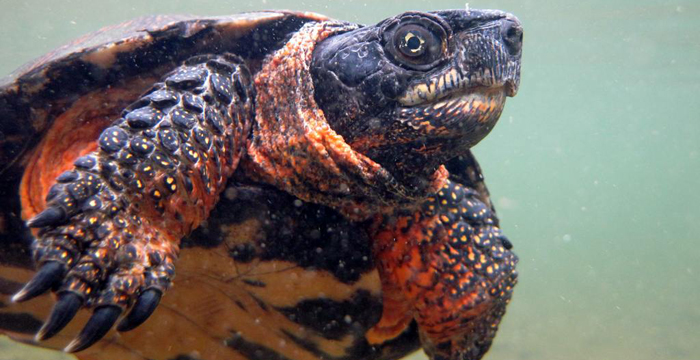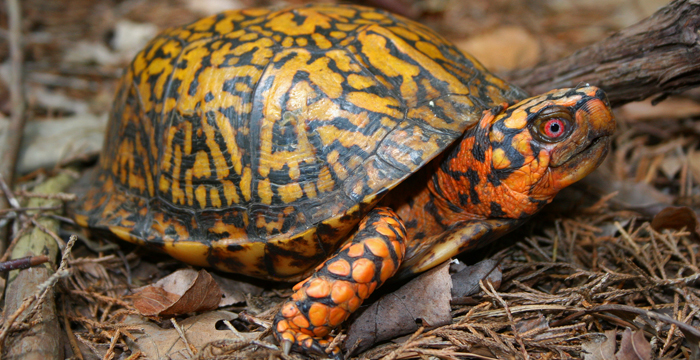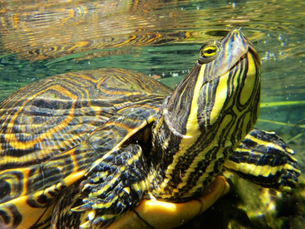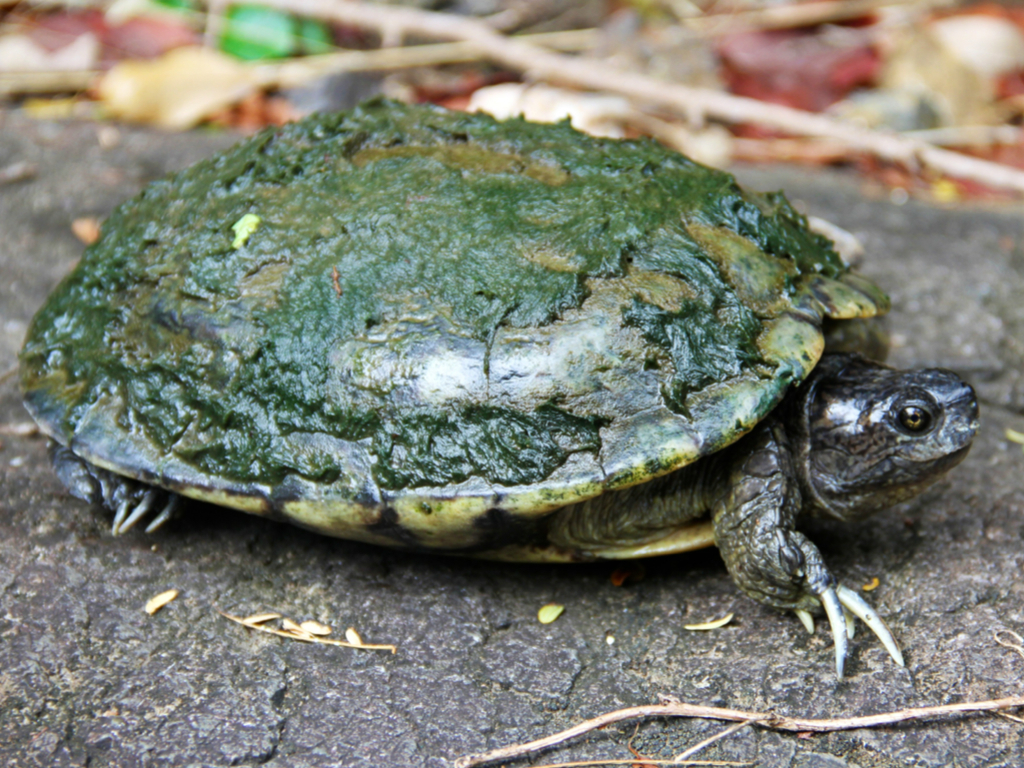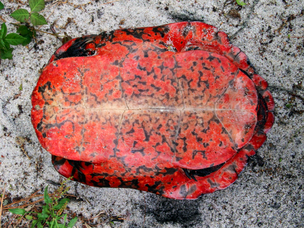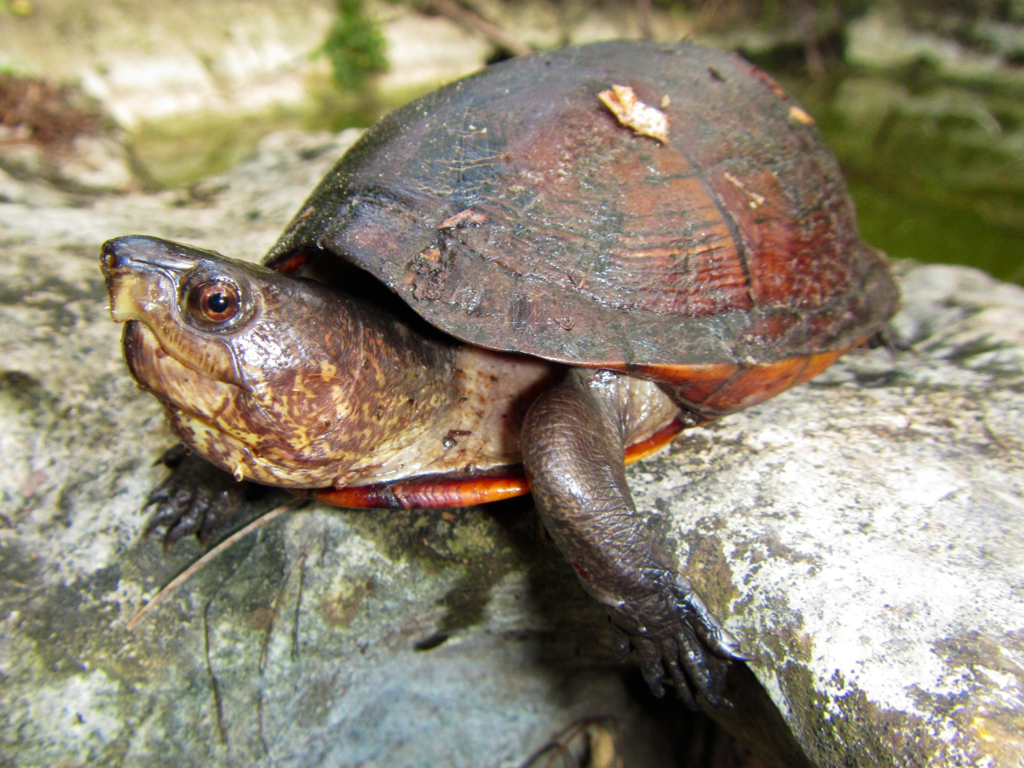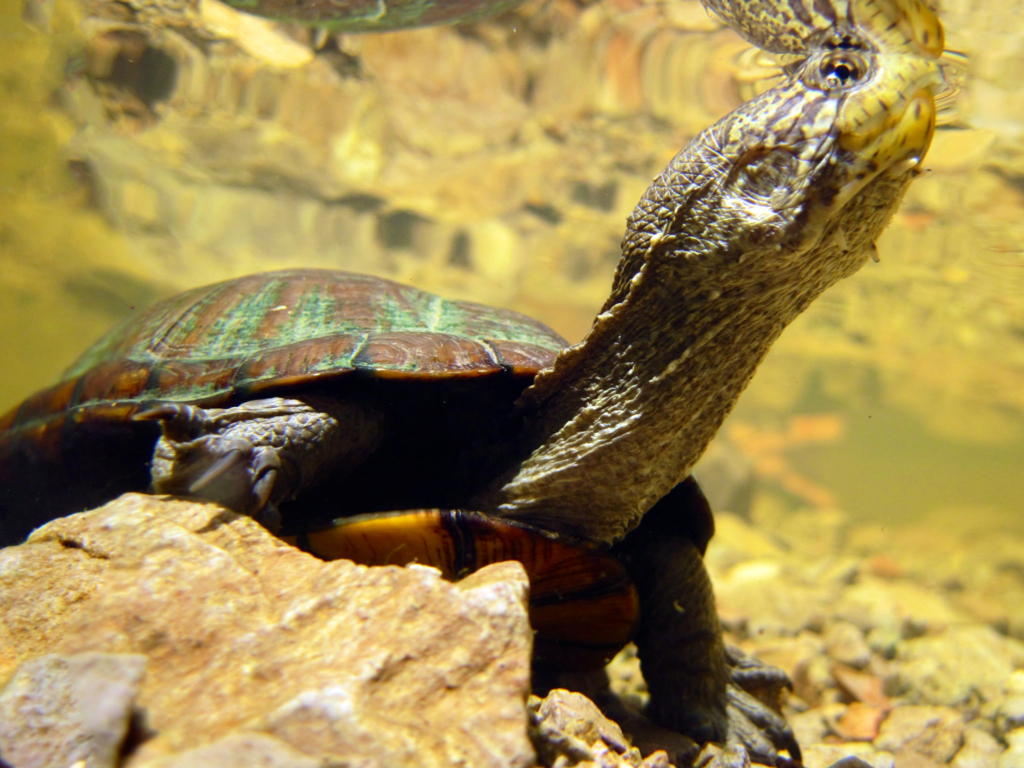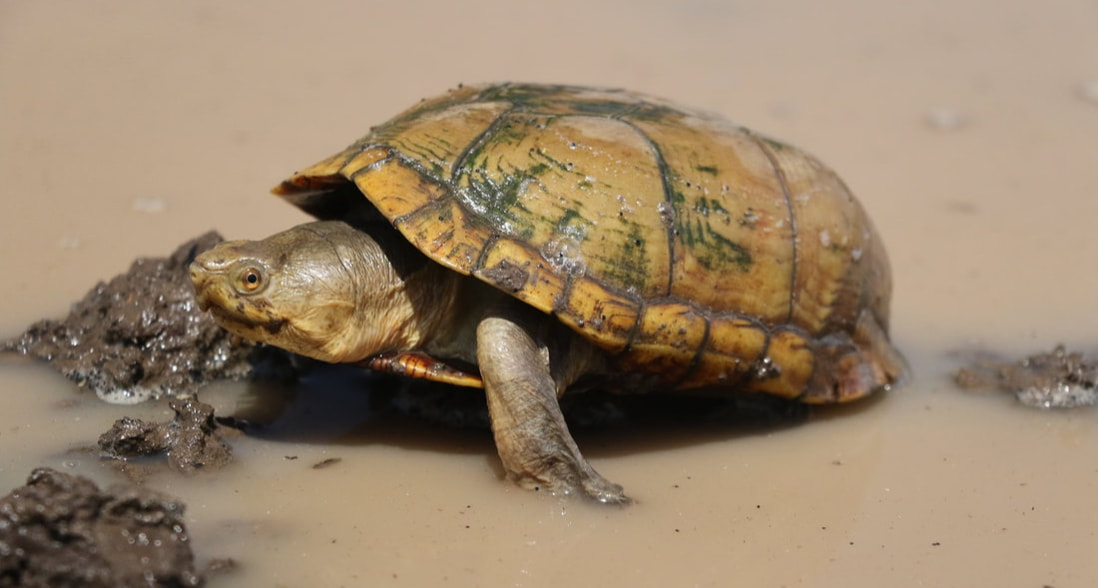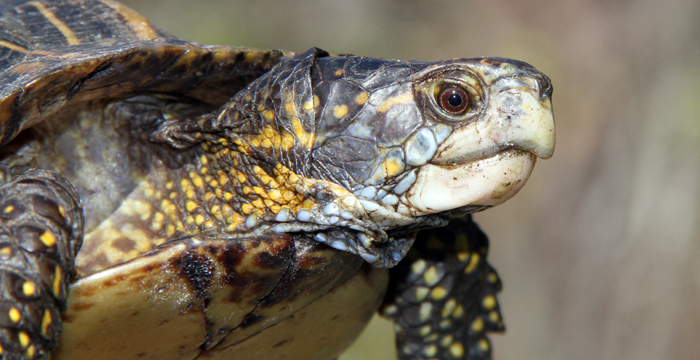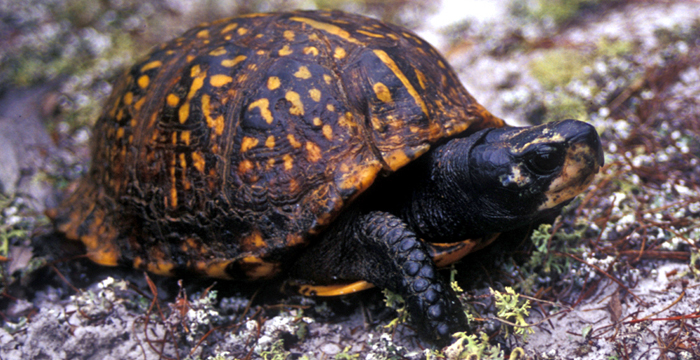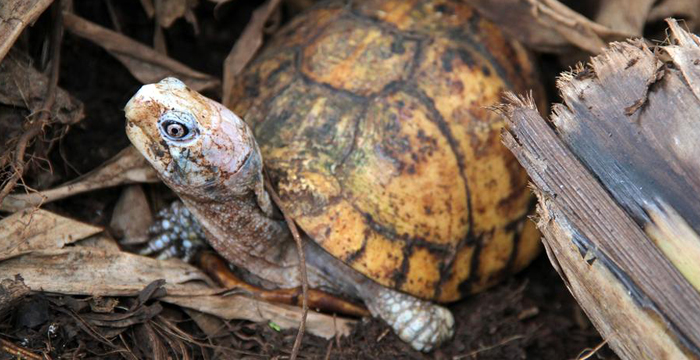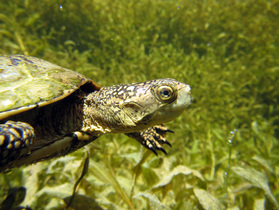Overview
In order to support freshwater turtle conservation efforts at multiple levels, we prioritize species for conservation action and long-term study based on quantitative criteria. We work primarily with widespread species of conservation concern throughout their range (Widespread "SGCN"), for which we develop status assessments and conservation plans and launch observatory networks, and range-restricted species, for which we individually tailor a conservation planning program.
Widespread Species of Greatest Conservation Need (SGCN)
|
Our primary conservation program focuses on widespread species of conservation concern ("Species in Greatest Need of Conservation"; SGCN), as determined by the Association of Fish and Wildlife Agencies (AFWA) and the individual Wildlife Action Plans of the States. In 2014, we completed a Conservation Plan for Blanding's Turtles. From 2012–2014, we developed a Status Assessment for Wood Turtles. With partners in Maine, New Hampshire, Massachusetts, Connecticut, Pennsylvania, Virginia, Georgia, and Florida, ATO is working on the initial components of a regional spotted turtle assessment. Looking farther ahead for Box Turtle conservation planning, ATO has established long-term observatory networks for five of 10 living box turtle subspecies. In 2018, with support from the Massachusetts Environmental trust, we will be revisiting sites that were studied over 10 years ago in Massachusetts to assess the effects of landscape change on 4 long-lived species of conservation concern.
|
Restricted-Range SpeciesSome species or lineages of turtles occur in small, isolated occurrences. Some of these populations are believed to be at risk of decline or extirpation from various threats or processes. We developed a quantitative ranking system to prioritize research and conservation activities for selected range-restricted lineages and species, including Baja California populations of the western pond turtle (Actinemys pallida), Yucatán and Florida box turtles (Terrapene yucatana and T. bauri), and several species of mud turtle (Kinosternon spp.) and cooters and sliders (Pseudemys and Trachemys spp.).
Sliders (Trachemys spp.) and Cooters (Pseudemys spp.) |
Mud Turtles (Kinosternon spp.)Arizona Mud Turtle |
Box Turtles (Terrapene spp.) |
Pond Turtles (Emys spp.) |
